
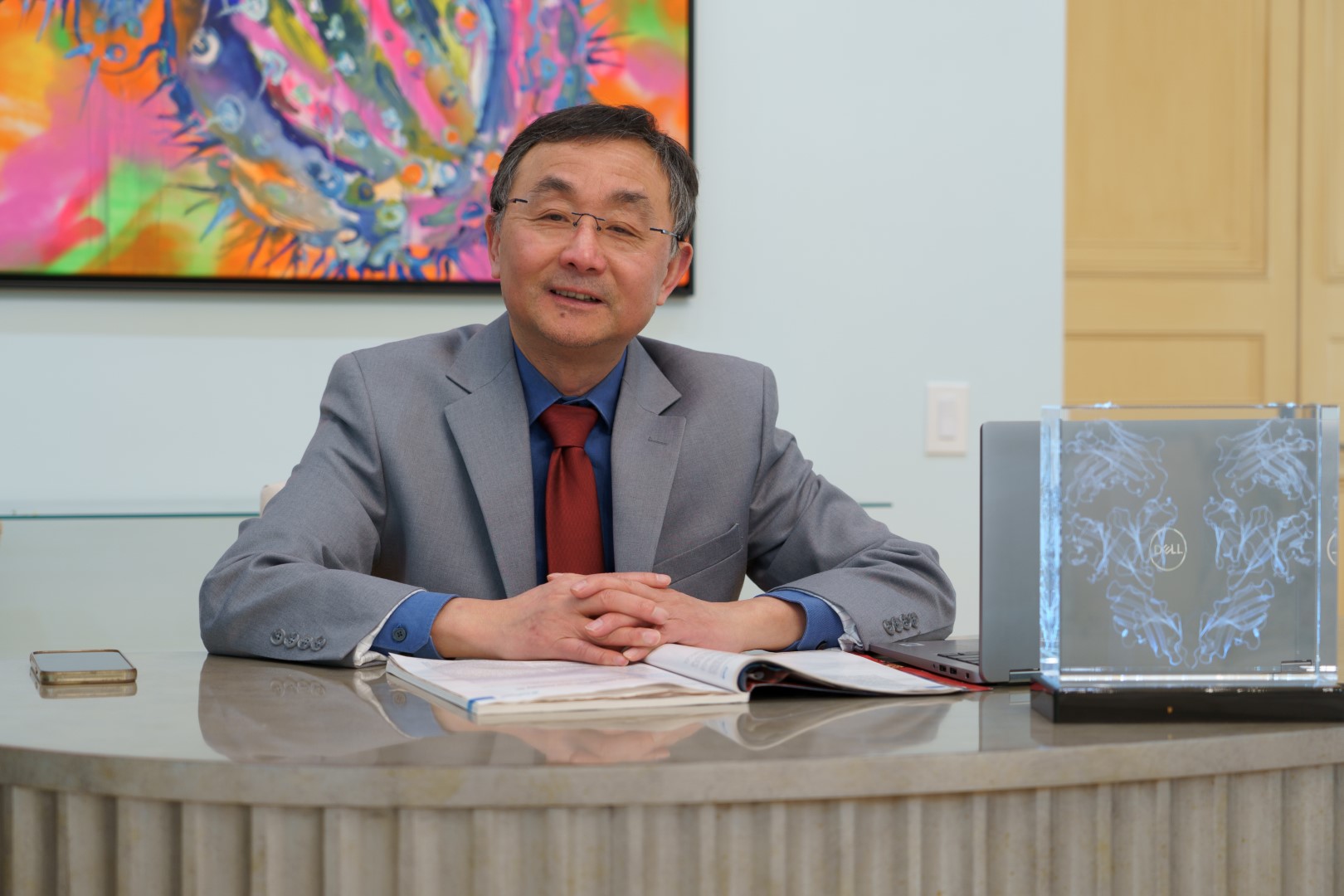
Chairman, CEO and CSO of OncoC4, Inc.
Dr. Yang Liu, Chairman, CEO, and CSO, OncoC4, Inc., is a rare combination of original researchers and successful entrepreneurs. As a leading cancer immunologist, Dr. Yang Liu had various independent research tenures, at New York University Medical Center, Ohio State University, University of Michigan, Children’s National Medical Center, and was awarded with endowed professorship and led cancer immunotherapy programs in most of these institutions until he took up the challenge of been full time CEO. Dr. Liu has published more than 200 peer-reviewed publications and filed dozens of patent applications. He was elected as a Fellow of the American Association for Advancement of Science in 2004 as a recognition of his pioneering contributions to innate immunity, T cell costimulation and tumor immunology.
His research career endows him with the discipline of focus, respect for data, appreciation of different approaches, and persistence.
His love of science and appreciation of others’ talents attract a diverse team of successful business, clinical and regulatory executives, and biopharmaceutical researchers and inspire the team to work together to make a transformative impact in immune-oncology research to deliver safer and more effective drugs for cancer patients. He is an independent thinker who charters his course. Having been a renowned academic investigator for many years, he brings a different perspective to the traditional CEO role and is heavily invested in the scientific foundation of the company.
Dr. Liu cofounded OncoImmune, Inc in 2000 and led it until its acquisition by Merck, Inc. in 2020. OncoImmune was founded on the scientific discoveries of its founders and have moved their lead product, CD24Fc, from a basic concept into clinical trials for multiple clinical indications.
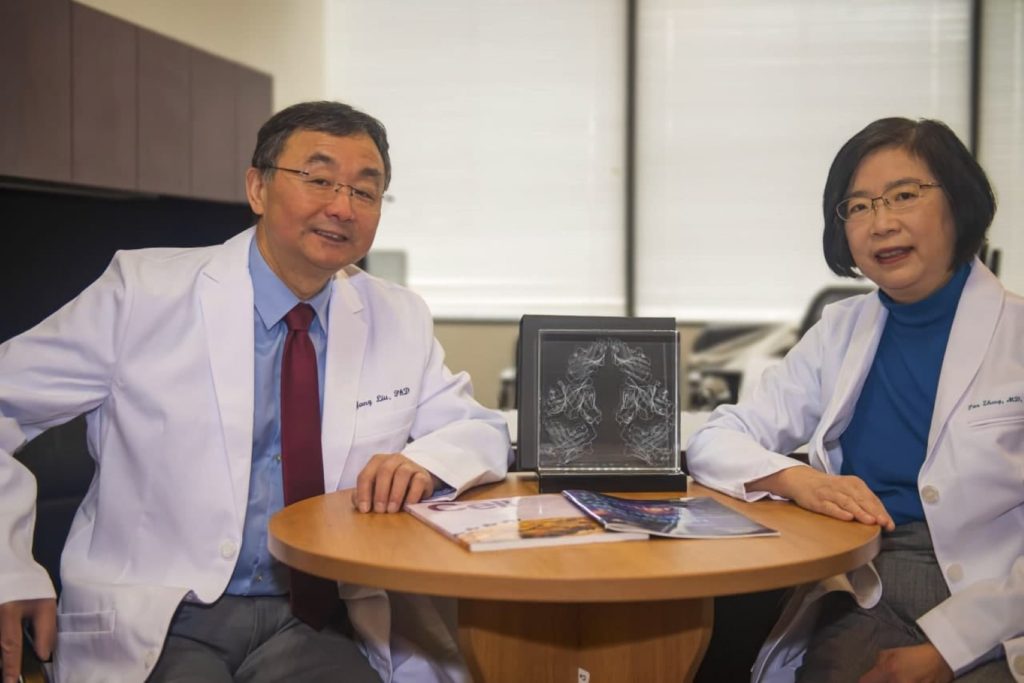
As part of global effort to confront COVID-19, OncoImmune also completed a Phase III clinical trial, SAC-COVID, which showed that CD24Fc significantly improved clinical recovery while reducing disease progression to death or respiratory failure of severely and critically ill COVID-19 patients.
After the successful phase 3 trial of CD24Fc above, the company was acquired by Merck for an upfront payment of $425 million, undisclosed milestones and royalties, coupled with a $50 million investment leading to the creation of OncoC4, Inc. a spinout that is focused on developing the oncology pipeline assets.
In December 2020, after the Merck acquisition and with Merck’s investment, Dr. Liu cofounded OncoC4 and serves as its Chairman, Chief Executive Officer and Chief Scientific Officer. Based in Rockville, Maryland, OncoC4 is a privately-held, clinical-stage biotech company that is actively engaged in the discovery and development of novel biologics for cancer treatment based on the scientific discoveries by Dr. Liu and his team. As a spinout of OncoImmune, OncoC4 retains the original assets except for the CD24Fc and was infused with additional funds from Merck to invigorate its product development pipeline focusing on best-in-class and first-in-class immunotherapies for oncology.
As a leading cancer immunologist, Dr. Yang Liu has made pioneering contributions to adaptive and innate immune checkpoints responsible for cancer immune evasion. On the adaptive immune checkpoint, CTLA-4, Dr. Liu’s laboratory was the first to identify the major CTLA-4 ligand, which was later called CD86. His decades of dedicated work on ligand recognition and biology of CTLA-4 led to OncoC4’s nextgen anti-CTLA-4 antibodies that differentiate from other CTLA-4 antibody products in that they selectively eliminate the evasive immune function of CTLA-4 by killing the high CTLA-4-expressing immune-suppressor cells (called regulatory T cells) reside in the tumors but preserve immune tolerance function of CTLA-4 in the normal tissues.
To test this concept, OncoC4 has sponsored the first-in-human study to assess the safety, pharmacokinetics, and efficacy of ONC-392 as a single agent in advanced solid tumors and in combination with anti-PD(L)1 standard of care in cancer patients (PRESERVE-001, NCT04140526). Recently released data from OncoC4 showed that ONC-392 appears to have better safety and higher clinical activity than other anti-CTLA-4 antibodies. In particular, promising clinical activities were observed in lung cancer patients who are resistant to current immunotherapy.
The New Innate Immune Checkpoint
Dr. Liu’s laboratory identified CD24-Siglec 10 innate immune checkpoint. This pathway was initially identified as a negative regulator for inflammation initiated by tissue injury, but its significance has been extended to several innate and adaptive immune effectors. In particular, this pathway helps cancer cells to evade innate immunity in the tumor microenvironment by preventing cancer cells from eating by macrophages and/or killed by other innate and adaptive immune effector cells. OncoC4, Inc. has embarked on IND-enabling studies and is on track to move their anti-Siglec 10 antibody drug to clinical testing later this fall.
Wholesome Research
Beyond the contribution to fundamental biology that is being translated in clinical trials, Dr. Liu has also impacted the process of bridging basic and translational research to clinical developments. For instance, in the late 1990s, his group was the first to use human gene knock-in mice to test immuno-oncology drugs in animal models. This method has become an industrial standard in assessing activity and selecting immuno-oncology drugs that target human molecules before testing them in humans. Separately, Dr. Yang Liu identified the most sensitive mouse tumor models for cancer immunotherapy, which have since become the models of choice for immuno-oncology drug development to study the anti-tumor responses.
True to its root of original research, OncoC4, Inc is building state-of-the-art research infrastructure. This allows them to be more adept, productive, and faster with their scientific advancements. They have also developed extensive collaborations with major academic centers around the world to stay at the cutting edge of immune-oncology research and are building a multi-center clinical trial network with leading institutes and hospitals, including international and national key opinion leaders as our clinical investigators for their clinical trials. The unmet medical needs for cancer patients who are resistant to other immune therapy treatments on the market or lack of effective immune therapy option propel Dr. Liu’s OncoC4 team to continue making advances in transforming their innovative immunotherapies into standard of care for cancer.
OncoC4, Inc’s lead product ONC-392 is a good example of a best-in-class product. CTLA-4 targeting agent was the first approved immuno-oncology drug, but it has met with an enormous challenge in the market because of its high toxicity, which also prevents patients from receiving effective dosing. Their original research revealed that toxicity and efficacy were due to separate properties of the anti-CTLA-4 drug in the market: toxicity was due to reduction of CTLA-4 molecules on the lymphocyte cell surface, which triggers the destruction of an important immune tolerance checkpoint. On the other hand, anti-cancer activity is attributed to the killing of regulatory T cells in the tumor microenvironment. ONC-392 prevents CTLA-4 from lysosomal degradation, thus reducing toxicity. Remarkably, avoiding lysosomal degradation also increased the efficacy of the antibody in tumor rejection. The lower toxicity and higher efficacy make ONC-392 best-in-class based on reported preclinical and clinical data. A number of competitors are all chasing the same mechanisms but have not paid sufficient attention to the biology of the target, which makes ONC-392 drug truly differentiated by this unique mode of action.
Towards the Future
The first-in-class drugs are OncoC4, Inc’s large pipeline targeting the CD24-Siglec 10 innate immune checkpoint which Dr. Liu’s team discovered. They have accumulated unique antagonists for this pathway, respectively, against CD24 and Siglec-10. Their pipeline includes anti-Siglec 10 antibody (ONC-841) that promotes both phagocytosis and killing of tumor cells by the host’s innate immune system, engineered cancer-specific anti-CD24 antibodies (ONC-781), chimeric antigen receptor CAR-T (ONC-782), T cell-engaging bispecific antibodies (ONC-783), and antibody-drug conjugates (ONC-784).
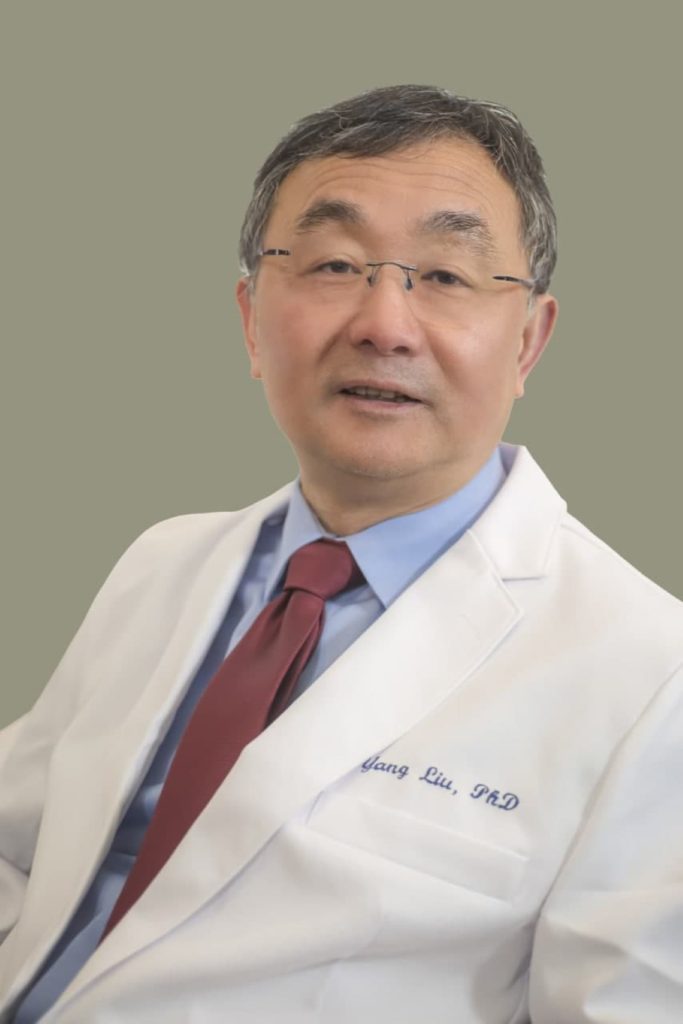
Importantly, their products are not limited to particularly histological types of cancer, either because the target is broadly expressed on essentially all solid tumors (ONC 781-784), or because the drugs activate the immune system with the potential to fight off all types of cancer.
Development of PD(L)1-targeting immuno-oncology drugs is an unprecedented breakthrough for cancer patients. However, approximately 70% of cancer patients cannot benefit from the PD(L)1-targeting drugs. These cancers are referred to as PD(L1)-resistant/refractory. There is very limited therapeutic option for PD(L1)-resistant/refractory cancer. Early data have shown that ONC-392 caused either complete or partial rejection of PD(L1)-resistant/refractory tumors in lung cancer patients and triple-negative breast cancer patients, with the benefit of being extendable to other cancer types that are resistant to immuno-oncology drugs, such as ovarian cancer.
The biggest achievement of OncoC4 so far is its successful execution of the first-in-human study. OncoC4 announced a very promising efficacy outcome of ONC-392 from 10 patients receiving the drug on November 9, 2021. The data showed beneficial clinical activity in 6 out of 10 patients.
Most notably, in the 10 mg/kg dose cohort of six patients, one patient with non-small cell lung cancer (NSCLC) and one with ovarian cancer had complete responses (CR). In the 3 mg/kg dose cohort of four total patients, two of them, including one patient with NSCLC and another patient with ovarian cancer, had stable disease (SD) for more than seven months at this report.
Moreover, among these 10 subjects there are 3 stage IV non-small cell lung cancer patients who had previously acquired resistance to PD(L)1 therapy, with acquired resistance defined as disease progression after 6 months on the PD(L)1-targeted treatment. All of these patients showed evidence of clinical benefit: one patient with CR, one patient with SD demonstrating significant reduction of tumor burden, and the third patient became eligible for surgery as multiple cancer lesions was resolved. These data signify that ONC-392 monotherapy has promising anti-tumor activity in Stage IV cancer patients who had previously failed multiple lines of therapy and who had previously acquired resistance to PD(L)1 therapy.
The company is gearing up to launch Phase 2 clinical studies, aiming to meet the unmet medical needs in most cancer patients: resistance to currently approved immunotherapy. With pending launch of the Phase 2 clinical studies, OncoC4 is one step closer to realizing the significant clinical impact this drug could bring to health care providers and patients for cancer immune therapy. Their success will also rekindle the interest in CTLA-4 as a target and new approach in CTLA-4 targeting while potentially providing a treatment option for more patient populations where effective measures do not currently exist.
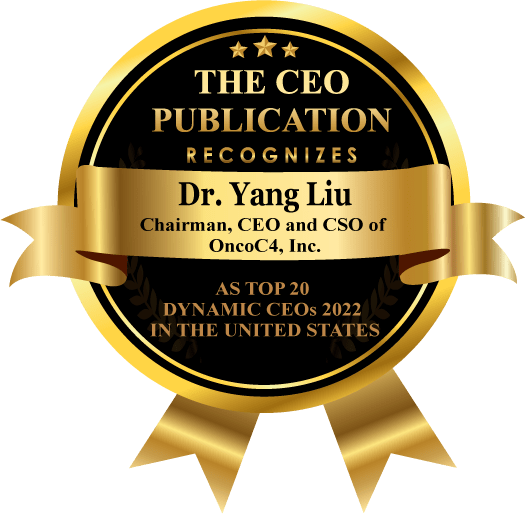
" Dr. Liu is recognized internationally for his research on innate immunity, immune recognition of cancer and activation of T lymphocytes, the main immune defender against cancer."



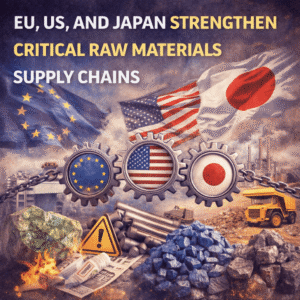
© THE CEO PUBLICATION 2021 | All rights reserved. Terms and condition | Privacy and Policy